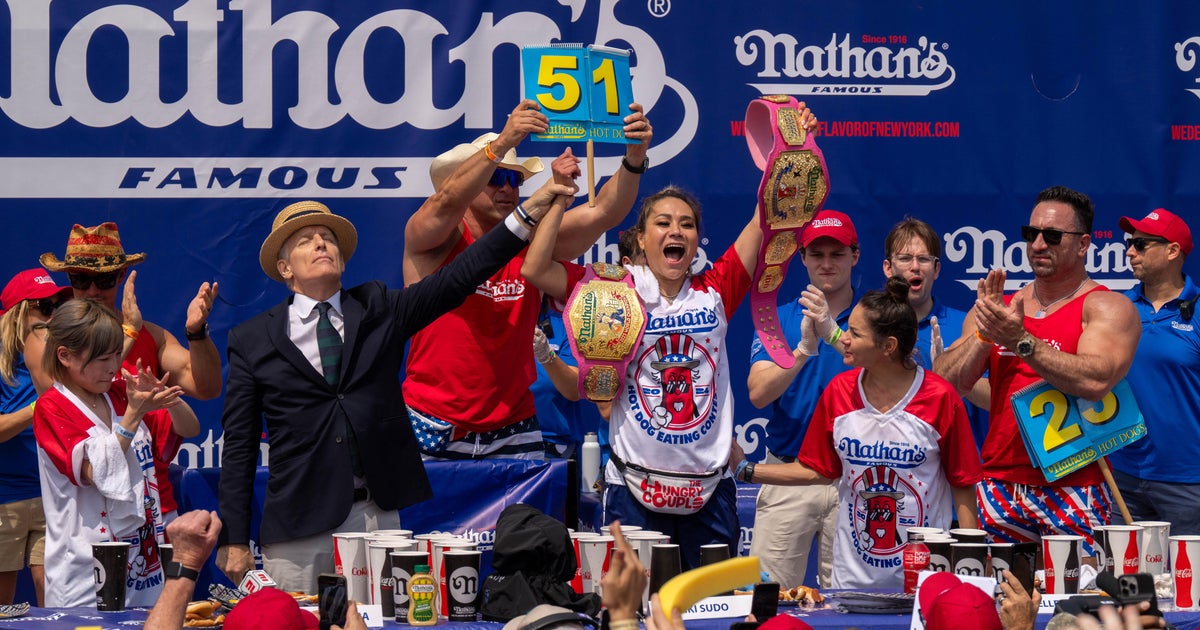He mocked the idea, then dismissed it.
Ms. Mantell was undeterred. She was still thinking about the possibilities of recorded poetry when she sat down for lunch early the next year with her college classmate Barbara Holdridge, a fellow 22-year-old who was similarly disenchanted by her job at a publishing house. The two friends got to talking about the Welsh poet Dylan Thomas, whose recent piece “In the White Giant’s Thigh” had scandalized some readers — but not them — with its provocative images of “butter fat goosegirls.”
It turned out that Thomas was speaking that night at New York’s 92nd Street Y. “We should go,” Holdridge suggested.
Ms. Mantell went a step further. “We should record him,” she said.
Over the next few weeks, the friends scrounged together about $1,500 to launch Caedmon Records, widely considered the first major label to specialize in spoken-word literary recordings. Its name honored one of the first Old English poets, a 7th century cowherd who was said to have waked up from a dream with the gift of verse and song.
After hearing Thomas at the Y, Ms. Mantell and Holdridge met the poet for drinks at the Chelsea Hotel, persuaded him to sign a record deal (a $500 advance for the first 1,000 sales, then a 10 percent royalty on the rest) and brought him to Steinway Hall, where he recorded several of his best-known pieces. To fill the B side of the record, they also recorded a largely forgotten Christmas story he had published in Harper’s Bazaar.
“What we heard was like a thunderbolt, transforming with its electricity,” Ms. Mantell recalled.
The resulting album, “A Child’s Christmas in Wales and Five Poems,” served as the foundation of their company, selling more than 400,000 copies by 1960 and emerging as a Yuletide favorite with its lilting remembrance of presents, music, snowball fights and log fires. In 2008, it was selected for the National Recording Registry.
In the two decades after its release, Ms. Mantell and Holdridge recorded many of the world’s most renowned writers, including W.H. Auden, T.S. Eliot, William Faulkner, Robert Frost, Lorraine Hansberry, Ezra Pound and Eudora Welty. Their recordings laid the groundwork for what is now a multibillion-dollar industry, with audiobook revenue totaling $1.6 billion in 2021, according to the Audio Publishers Association.
“Caedmon proved that spoken-word recordings could be both culturally significant and commercially viable,” said literary scholar Matthew Rubery, who chronicled the company’s history as part of his 2016 book “The Untold Story of the Talking Book.”
In an email, he added that the label “succeeded in making ‘highbrow’ literature accessible to a mass audience,” with a special appeal for listeners “who yearned for a more immediate and intimate connection with authors.”
Ms. Mantell, who died Jan. 22 at 93, spent years trying to deepen that connection. As she saw it, Caedmon’s recordings were an enhancement of the literary experience, not a diminishment. Her mind-set that was summed up by the company’s slogan: “A Third Dimension for the Printed Page.”
“Our purpose was literary: to capture on tape as nearly as possible what the poet heard in his own head as he wrote,” she wrote in a 2004 essay for AudioFile magazine. “We were trying to take contemporary poetry away from the literary critics and give it back to its audience. We sought to provide a new original source, the voice of the poet him- (or her-) self.”
Poetry has been a part of recorded sound ever since Thomas Edison invented the phonograph in 1877, showing off his creation by recording “Mary Had a Little Lamb” on tinfoil. But it took decades to realize the potential of spoken-word recordings, with help from technological innovations such as magnetic tape and the long-playing record, or LP, which enabled Caedmon — and competitors such as Listening Library and Spoken Arts — to record longer texts without interruption.
In its early days, Caedmon was based out of a dilapidated loft that was home to little more than two chairs, a telephone and a wheelbarrow, which the founders used to move records from the manufacturer to their office. Ms. Mantell later told Newsday that music industry veterans advised the two women to get out of the business “before we lost the ladylike equivalent of our shirts.”
But by 1966 Caedmon had $14 million in annual sales and occupied an entire floor in a Manhattan office building, according to an account from the Women’s News Service. The co-founders credited their growth in part to a regional theater boom that generated interest in classic literature, as well as federal funds that helped schools and educational groups buy their records, which were priced at a premium. Some albums sold for nearly $20.
The company’s releases included readings of Broadway plays such as Arthur Miller’s “Death of a Salesman,” texts by African American writers such as Langston Hughes, and a set of Shakespeare’s collected works, for which they invested more than a half-million dollars and enlisted British theater luminaries including Laurence Olivier, John Gielgud and Vanessa Redgrave.
If the company’s releases were pioneering, so was its management team: Caedmon, which operates today as the HarperCollins imprint Caedmon Audio, was one of the only female-owned record labels of its time.
The company tried to counter misogyny from the beginning. In a 1960 interview with Time magazine, Ms. Mantell recalled that when an usher blocked her and Holdridge from meeting Thomas at the Y, they sent the poet a note requesting a meeting, but signed it only with their first initials and last names “so he wouldn’t know we were unbusinesslike females.”
(If they had known Thomas better, Holdridge told Canada’s National Post, they would have signed only their first names and the poet “would have come running.” As it happened, she added, they had a “lovely” first meeting: “Dylan was an incredible punster, but so were we. In the end we punned him under the table, and so he agreed to record for us.”)
Other Caedmon clients took more coaxing and were occasionally unhappy with the way things turned out. John Cheever lamented that he sounded like a moldy fig, and Ernest Hemingway was disappointed “because his voice was a light tenor,” Ms. Mantell said, “and didn’t jibe at all with the rough, raucous, macho image he wanted to project.”
Behind the scenes, she and Holdridge were aided by a staff that included recording engineer Peter Bartók, a son of composer Béla Bartók, and a young Mike Nichols, who served as the company’s shipping clerk before rising to stardom as a comedian and director. A promising artist named Andy Warhol provided the cover art for a Tennessee Williams record, while playwright and screenwriter Howard Sackler served as the company’s dramatic director.
Sackler was given free rein to record whatever he wanted, with some exceptions. One was Vladimir Nabokov’s 1955 novel “Lolita,” which was vetoed by Ms. Mantell. The book was banned in Britain and polarized reviewers with its descriptions of childhood sexual abuse. According to her co-founder, she believed that the book would probably be forgotten within 20 years. Instead, it has acquired a reputation as one of the 20th century’s greatest novels.
For the most part, however, Ms. Mantell had a keen eye for English-language literary excellence. That trait that was all the more striking given that she grew up speaking German.
Marianne Roney, as she was first known, was born in Berlin on Nov. 23, 1929. Her family was Jewish and fled the country after Hitler’s rise, traveling across Europe before making their way to New York in 1941. Her father was a mechanical engineer, and her mother was a bookkeeper who became an importer of houseware.
Ms. Mantell played the violin and studied at the High School of Music & Art in Manhattan before receiving a bachelor’s degree from Hunter in 1950. Six years later, she married Harold Mantell, a public relations executive who later made documentary films, including on Frost and other authors who worked with Caedmon.
In the early 1970s, Ms. Mantell and Holdridge sold their company to the Raytheon-owned publishing firm D.C. Heath. Holdridge started a small press, and Ms. Mantell joined her husband in running Films for the Humanities and Sciences, later known as the Films Media Group, a distributor of educational documentaries.
In part, the company’s proceeds funded her travels around the world, including to North Korea and to both the North and South Poles.
Her son Michael said she died at her home in Princeton, N.J., of complications from a fall. He survives her, as does a daughter, Eva; seven grandchildren; and two great-grandchildren. Her husband died in 2006, and she was predeceased by two sons, Stephen in 2009 and David in 2011.
Ms. Mantell and Holdridge were honored in 2001 with the Audio Publishers Association’s Audie Award for special achievement.
In interviews they often marveled at their success, noting how it seemed especially unlikely given how much time they spent reading ancient texts in college. “After studying Greek, Gothic and Sanskrit, we were obviously unfitted for anything,” Ms. Mantell said.
And yet, she told Time, “We apparently had a streak of business sense.”














































